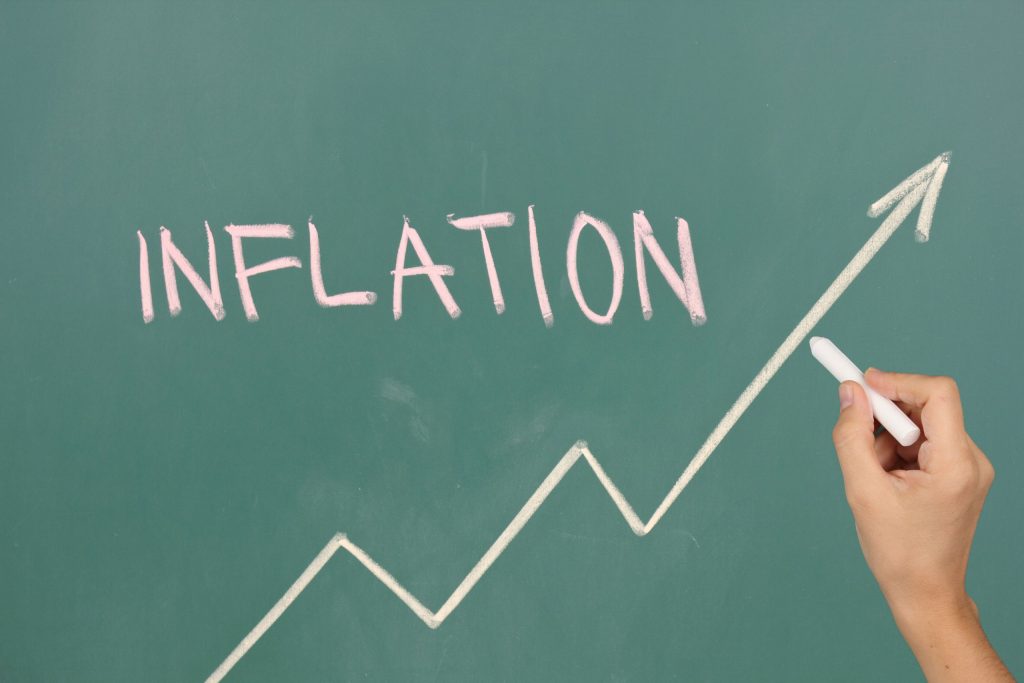An economic phenomena known as inflation is characterized by a continuous rise in the overall price levels of goods and services, therefore reducing buying power. Rising prices force customers to rethink their expenditure as the same amount of money buys less products and services. Personal finances are greatly impacted by this decline in buying power, which influences daily needs such electricity, food, and transportation prices. Furthermore, inflation might reduce the value of savings over time, therefore people should look for higher-yield investments to exceed growing rates. Good money management becomes very crucial during inflation; preemptive preparation is the best way to minimize its consequences. Understanding how inflation affects financial stability helps people to modify their budgets, look at other income sources, and make wise investment selections thus preserving their financial situation in unpredictable economic times.
Understanding Inflation and Its Impact on Daily Life
The pace at which the general level of goods and service prices rises—so lowering purchasing power—defines inflation. Basically when inflation increases, the same amount of money purchases fewer goods and services. Usually stated as a percentage, this phenomena shows the degree of change in prices during one time. Over time, constant inflation might fundamentally alter consumer behavior, which forces consumers to pay more for the same items they previously purchased at less costly prices. It might result in a situation when even basic requirements become more expensive, therefore pressuring family finances and calling for difficult financial decisions.
Personal budgets are substantially affected by inflation in many ways. As their cost of living increases, families might find themselves devoting more of their income to requirements such food, housing, and medical care. This increasing cost will lower discretionary expenditure, which will influence overall quality of life and push individuals to rethink their financial goals. Excellent financial planning calls an early understanding of inflation’s effects. Understanding the consequences of inflation will enable people to actively modify their savings, investments, and consumption patterns, therefore preserving family economic stability and helping to offset the bad impacts of growing prices.

Assessing the Areas Most Affected by Inflation
Beginning with basic needs like electricity and food, inflation affects many facets of personal budget. Rising food and energy costs force customers to allocate more of their budgets toward these essential goods, often reducing their capacity for discretionary expenditure. The cost of basic foods would increase, for instance, which would lead households to either eat less generally or look for worse-quality replacements. Price hikes also impact utilities, which might further drain family resources particularly in seasons of extreme weather when heating or cooling costs explode.
Moreover affecting housing expenditures including rent and mortgage rates is inflation. If demand for properties continues rising, landlords may boost rents even if homeowners may have to pay more mortgage interest. For those already on tight budgets—especially those on fixed incomes, such as retirees—this may be financially taxing. Some individuals start to worry about the falling value of savings because their buying power decreases as inflation rises, therefore compromising their quality of life. If fixed income individuals find it increasingly difficult to pay for increasing transportation, healthcare, and other required costs, their long-term planning and financial stability may suffer.
Budgeting Strategies to Combat Inflation
Since inflation affects personal income, using good budgeting techniques may help to significantly control increasing expenses. One very important advice is to give critical costs top priority. Start by noting needs like housing, utilities, food, transportation, and healthcare. Set more of your income toward these areas before discussing discretionary spending. This emphasis ensures that your basic needs are met even with shifting prices. Though your overall spending is important, consider how much you truly spend in these areas to avoid going overboard.
Continuous analysis of spending patterns is also a smart action. Budgeting tools or simple spreadsheets let you monitor your weekly or monthly expenditure. This exercise will help you to identify places where you might be overpaying and where changes are required. By tracking your financial activities, you may identify triggers and trends—like impulse buys—that might otherwise go unnoticed. Active knowledge of your financial situation can help you to make wise judgments on areas of expense reduction, therefore maintaining financial stability. Reducing non-essential expenditures is another smart tactic under inflation. Examine your spending habits and consider eliminating or downing subscriptions, luxury items, entertainment, or dining out related costs. This is an opportunity to look into low-cost substitutes such free community events or friend potlues. Apart from saving money during inflationary times, this may encourage creativity and community development by turning a challenge into a chance for outstanding events free from the great expense.
Two main strategies for handling inflation are finally learning to be adaptable and regularly reviewing your financial objectives. Your budget should adapt to changes in the status of the economy and seek for new investment or saving opportunities. Set aside time every month or quarter to review your financial objectives; this will help you to change your approach depending on current inflation rates. Remaining flexible and proactive can help you to safeguard your personal money among the demands of inflation, thereby gradually securing your financial future.
Maximizing Savings and Investments During Inflation
Maintaining financial stability in inflationary times needs for strategic preparation and preventative actions. One wise approach to safeguard your money is to use high-yield savings accounts. Usually with interest rates greater than those of traditional savings accounts, these accounts enable your money grow faster and remain easily accessible in case of need. This financial buffer might be very helpful in allowing you negotiate cash flow interruptions without using high-interest loans.
Another key tactic is making investments in assets resistant to inflation, including commodities or real estate. While items like gold and oil retain value under inflation, real estate often rises with time and might provide rental income. Different asset types help you also lower risk and provide a protection against market volatility. Furthermore helpful is regular long-term investment; it improves discipline and, particularly in circumstances of compound interest, may provide relatively significant profits over time. These techniques might help you to be ready to safely negotiate economic instability and protect your financial situation.
Leveraging Inflation-Proof Financial Tools
Treasury Inflation- Protected Securities (TIPS) and inflation-linked bonds may assist you to basically neutralize the impact of inflation on your finances. These investment vehicles fluctuate their principal value based on Consumer Price Index (CPI) rises, so they are meant primarily to fight against inflation. The value of these bonds increases with inflation, therefore guaranteeing over time preservation of your buying power. Including TIPS into your investing portfolio can help you to have a consistent source of income and reduce the inflation-related hazards.
For those depending on fixed incomes—such as retirees—knowing cost-of- living adjustments (COLAs) is very vital. Many pension plans, Social Security payments, and annuities include COLAs that modify payouts depending on inflation rates, therefore maintaining buying power against loss of value. This approach ensures that, even with increasing prices, necessary expenses—including housing and healthcare—remain reasonable. Seeing a financial counselor might also be very beneficial as they can create tailored programs to manage your specific financial situation. Regularly assessing your financial plan and building a diverse portfolio with inflation-resistant assets can help you to better equip yourself to meet the demands presented by inflation.

Conclusion
Those who know how inflation impacts their own money will be able to maintain personal buying power and financial stability in a continually changing economic environment. When prices rise, budgeting, saving, and investment strategies have to be actively adjusted to try to slow down the loss of money’s value and ensure that fairly priced fundamental products and services will always be available. Understanding the consequences of inflation and making wise financial choices would help people to properly negotiate these obstacles and maybe find chances for development even in difficult economic times. By using a proactive approach and stressing strategy adaptation, people may not only protect their money but also flourish in face of inflationary challenges.